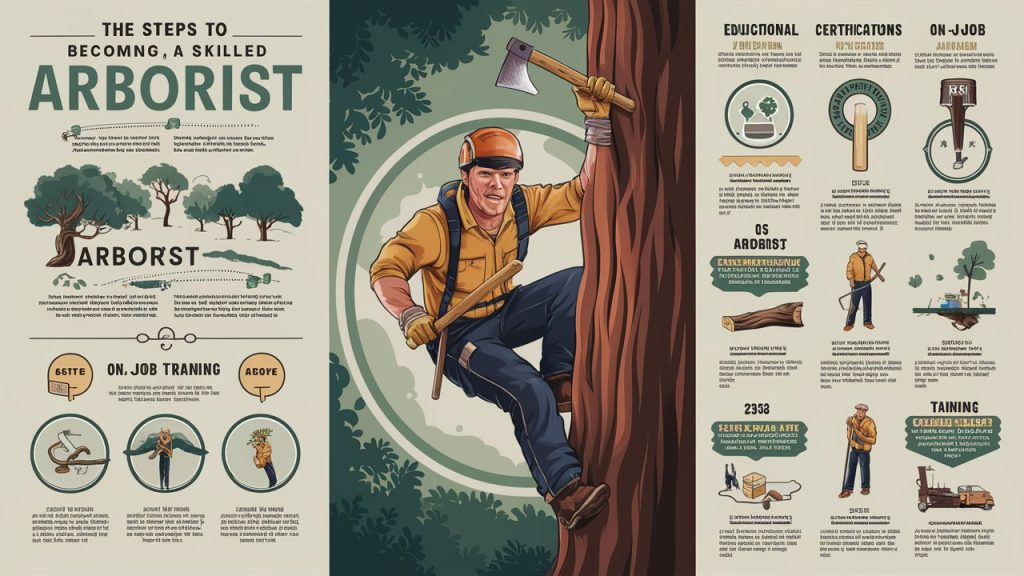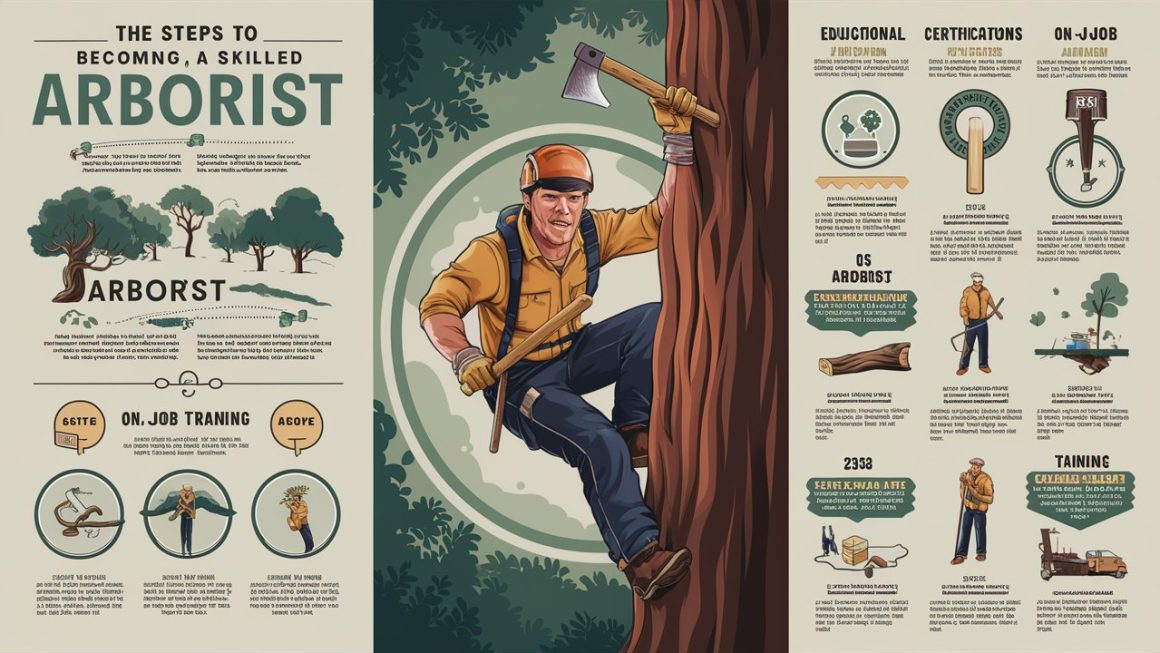Table of Contents
Are you passionate about trees and wondering, “What are arborist education requirements?” This question is crucial if you dream of a career as an arborist. Arborists are tree care specialists who ensure the health and safety of trees. To become one, you need specific education and training. This article explores arborist education requirements and how you can succeed in this field.
Understanding Arborist Education Requirements

What Are Arborist Education Requirements?
To start, let’s define arborist education requirements. These are the necessary qualifications and training that one must complete to become an arborist. They include formal education, certifications, and hands-on experience.
Why Are These Requirements Important?
Understanding arborist education requirements is essential because they ensure you have the proper knowledge and skills to care for trees. Trees are vital to our environment, and their care must be in knowledgeable hands. click for more info: What was written on Mother Teresa’s Wall?
Formal Education for Arborists
High School Diploma or Equivalent
The first step in meeting arborist education requirements is obtaining a high school diploma or equivalent. This primary education provides the foundation for further studies and training.
Associate or Bachelor’s Degree
If you’re curious, “What are arborist education requirements?” you’ll discover that they ensure arborists are well-prepared and knowledgeable. While only sometimes required, an associate or bachelor’s degree in arboriculture, forestry, horticulture, or a related field can be beneficial. These programs offer in-depth knowledge about tree biology, pest management, and soil science.
Relevant Courses
Taking relevant courses is still essential if you choose not to pursue a degree. Plant biology, soil science, and environmental science courses can provide valuable knowledge.
Certification and Training
Certified Arborist Credential
One of the key requirements for arborist education is to earn a certified arborist credential from the International Society of Arboriculture (ISA). This certification demonstrates your expertise and commitment to the field.
Additional Certifications
Other certifications, such as Tree Risk Assessment Qualification (TRAQ) or Certified Tree Worker, can further enhance your credentials. These certifications show specialized skills and knowledge.
Hands-On Training
When exploring “What are arborist education requirements?” you’ll find that a mix of education, certification, and experience is needed. Practical experience is a crucial part of arborist education requirements. Apprenticeships, internships, or working under experienced arborists provide the hands-on training required to apply theoretical knowledge.
Skills Needed for Arborists
Technical Skills
For those asking, “What are arborist education requirements?” understanding the necessary steps is crucial for career planning. Arborists must have strong technical skills, including knowledge of tree species, soil types, and pest control methods. These skills are essential for diagnosing and treating tree issues.
Physical Fitness
An arborist’s job often involves physical labor, such as climbing trees and operating heavy equipment. Good physical fitness is necessary to meet the demands of the job.
Safety Knowledge
Many ask, “What are arborist education requirements?” to ensure they meet the necessary qualifications for this specialized field. Safety is a top priority in arboriculture. Understanding and following safety protocols is critical to prevent accidents and injuries.
The Path to Becoming a Successful Arborist
Start with Education
Begin your journey by completing the necessary education. Whether through formal degrees or relevant courses, ensure you have a strong foundation in tree care knowledge.
Gain Practical Experience
Seek out opportunities for hands-on training. Apprenticeships and internships provide invaluable experience and allow you to learn from seasoned professionals.
Get Certified
Earning a certified arborist credential is a significant milestone. This certification validates your skills and enhances your job prospects.
Continue Learning
If you’re wondering, “What are arborist education requirements?” you’re on the right path to understanding this rewarding career. Arboriculture is an ever-evolving field. Stay updated with the latest techniques, research, and industry standards through continuous education and training.
Challenges in Arborist Education

Access to Education
One challenge in meeting arborist education requirements is access to quality education and training programs. Finding accredited institutions and certified trainers can be difficult, especially in remote areas.
Balancing Work and Study
Understanding “What are arborist education requirements?” helps aspiring arborists know the path to certification and success. Many aspiring arborists must balance work and study. This can be challenging but essential to gaining theoretical knowledge and practical experience.
Staying Updated
Keeping up with new developments in arboriculture requires continuous learning. This can be time-consuming, but it is necessary to stay relevant in the field.
Also Read: Policy Frameworks in Education: Unlocking Future Success Today
Final Thoughts
Understanding “What are arborist education requirements?” is the first step toward a successful career in arboriculture. You can become a skilled and knowledgeable arborist by following the outlined education path, gaining certifications, and acquiring hands-on experience. Meeting these requirements not only ensures you are well-prepared for the job but also helps you contribute to the health and beauty of our environment. Embark on this journey today and unlock your future success as an arborist.




